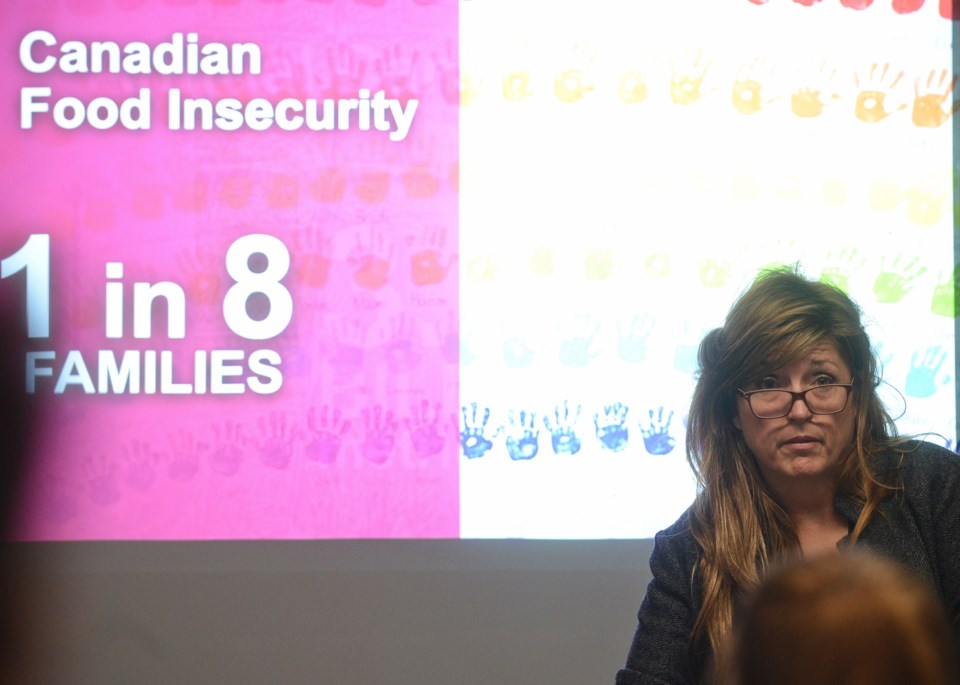A number of agencies and organizations in Guelph that provide food to those in need agreed to work together to help overcome some of their key hurdles Wednesday.
Representatives from the Salvation Army, SEED, The Drop-In Centre, various Rotary clubs, Hope House and the Guelph and Wellington Task Force For Poverty Elimination were among those crowded into a University of Guelph classroom to hear, discuss and share what problems they face and hear about a new resource that could help.
The theme that came up time and time again was a lack of volunteers, transportation and refrigeration.
“In this city, we’re wasting a lot of food. It’s sad,” said Dr. Mohamed Hussein, one of the facilitators of the meeting and part of a group who have been visiting the city’s four Rotary clubs to drum up interest in doing something about getting surplus food to those in need.
A commitment to work together to help address those issues was agreed upon at the end of the meeting, with plans of a working group being formed.
Those in attendance also heard about FoodRescue.ca, a new website coming in June that allows those with excess food (usually grocery stores, farmers or bakeries) to indicate what excess food they have. Registered, vetted and inspected non-profit and charitable organizations can then claim that food and arrange a pick-up time.
FoodRescue.ca is not for individuals.
“This new platform takes a local approach to rescuing food. We heard from businesses that they're very willing to donate their surplus product. They just needed a system to make it easy and safe to connect with social service programs in their own communities,” the FoodRescue.ca web site says.
Lori Nikkel, the executive director of FoodRescue.ca, spoke at Wednesday’s meeting.
“There is so much food out there that is being wasted,” said Nikkel. “It’s being lost across the supply chain.
“Surplus food. This is what we want. It’s not food waste, it’s surplus food. It’s unsold food.”
There are a wide variety of reasons that surplus food exists, Nikkel said, including good food about to pass an expiry date, food that was over-ordered or overproduced.
Nikkel said many major retailers are on board with FoodRescue.ca.
Food on the website will be divided by location and categories. Agencies wishing to access it must be vetted and inspected to make sure the food will be handled safely.
“This is not a food security initiative,” bluntly stated Nikkel, who also serves as Director of Programs and Partnerships with Second Harvest, the 32-year-old Toronto organization that rescues and distributes quality surplus food (an estimated 33,000 meals a day).
She said it’s more of an environmental initiative, getting good food to people that can use it.
As one person in the audience said, the problem is a logistical one: “Getting that available food from A to B.”
Many organizations also lack refrigeration to keep fresh produce and meat.
Randalin Ellery of the Guelph and Wellington Task Force For Poverty Elimination pointed out that a previous farm to fork initiative aimed at utilizing surplus fresh food in the area was started, but it fizzled out because of transportation and storage issues.
“We’re trying to strengthen things. This (FoodRescue.ca) could be a tool that makes our lives easier and more efficient,” Hussein said to the agencies in the room.
“Everybody wins. It’s not territorial.”
